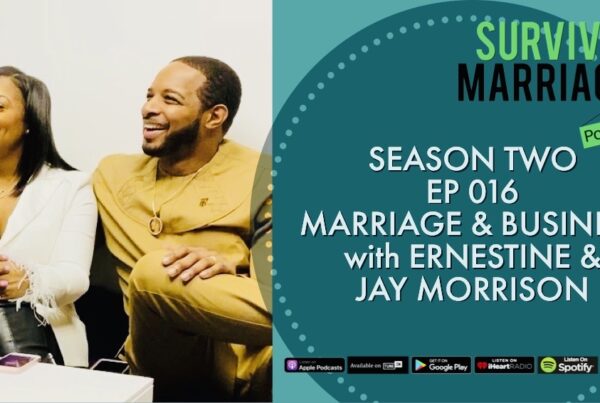Surviving Business – 10 Tips on How to Be a Better Entrepreneur in 2014
Entrepreneurship
-
Profession
-
Entrepreneurship is the process of starting a business or other organization. The entrepreneur develops a business model, acquires the human and other required resources, and is fully responsible for its success or failureI know, I know… It’s almost 2015. But guess what? Some folks are just starting their trek to job freedom and these tips are very good they can be used any time of the year.via Entrepreneur.com
The start of a new year is a great time to put our work habits under a microscope, toss the ideas that haven’t been working and put new action into play. Each year has its lessons, so it’s always good to reflect on what you’ve learned and optimize the knowledge for the coming year.
Below are 10 tips on how entrepreneurs can start 2014 on the right foot.
1. Confront and work on your challenge areas. Knowing your strengths is easy. Facing and fixing your weaknesses can sometimes create inaction in all of us. But to grow, it is important to make this change. There are a billion “I can’t” reasons and most are founded on nothing but fear — many times we are simply standing in our own way.
Use 2014 to pinpoint and build up the areas that are challenging you. Classes are great, but as entrepreneurs we need action now. Be proactive by turning to the internet. Look for information, articles, mentors and online tutorials for help.
2. Blend work-life and personal life. Professional life and personal life can be horrible counter weights to each other, creating an imbalance. Scrap the balancing act. Focus on what you’re passionate about and maintain your intention to have more of it in your life.
For 2014, look for quick and convenient ways to blend personal life and professional life into a healthier lifestyle that works better for you, the people you love and your job. Honestly, if you add value it doesn’t matter how the job gets done.
3. Let apps do the hard work. What’s taking up your time? There’s probably an app for it. Let it do the work. For instance, Cardmunch is awesome. It automatically converts business cards into contacts with a click of a button. Or 1Password stores all your logins and passwords in a safe, easy to access place. If you find a task taking up too much time, see if there is a tool that can make your life easier.
4. Give a little help. When someone hands me a business card I make a note of how I can help that person. I like to connect people and have always valued when it’s done for me, so I try to give back when relevant. It could be as easy as connecting them with a colleague or sending a book or digital article relevant to a conversation.
5. Play tag. Another business card tip? “Tag” business cards when you receive them. Immediately jot down tags, or notes, to help you remember what the business card doesn’t tell you, such as their interests, goals, alma mater or a mutual contact, among other details. Act fast, while the light bulbs are coming on in your head and be succinct.
6. Have the difficult conversations. A friend and advisor told me something a few years ago that has really stuck with me. He said, “The person who can’t have the difficult conversations won’t be around long.” What a profound, true statement that is — both personally and professionally.
Have the difficult conversations in 2014: at work and at home, with others and yourself. If you approach these conversations in the right way, you’re likely to learn and grow in the long run.
7. Make a game out of KPI (Key Performance Indicator). In everything you do this year, find the KPIs by looking for the things that signal success or failure.
Make a game out of KPI and have fun. For example, when we make a big announcement at my company Sage One, an online accounting application for small businesses, we try to beat the high score for opened emails, clicks and trials.
8. Have a two-minute rule for no-brainer tasks. Save your perfectionist and OCD tendencies for the important stuff. I like to blaze through the mindless tasks first thing in the morning when I am planning my day and setting daily goals. When things pop up and take two minutes or less, I like to figure them out immediately.
The time to kick the OCD into high gear and give proper attention is when focusing on higher priorities and early-stage ideas. Otherwise, they will die on the vine.
9. The visual bypass. What is the best way to receive buy-in on ideas to ensure they reach market? Who knows: I still haven’t figured it out yet.
But lately I’ve found I saved a lot of time by presenting my ideas visually. Aside from it saving time, telling your story, plan or strategy visually creates more groupthink within the team. How so? A visual of an idea with succinct requirements tends to be shared more across groups, thereby, increasing early-stage comprehension of a new idea or project. This is always a good signal that you’re on the right path, and it accelerates the validation from important stakeholders — a key requirement for any idea to gain early traction.
My go-to tool is Omnigraffle. It’s great for mapping the journey of our customer and finding areas where we can improve.
10. Take an improv class. I took a weekly improv class for six months. I can’t tell you how much this helped me professionally by allowing me to be myself more, took away my jitters and taught me the ever-important fearlessness to fail.
Improv is challenging, but you’re with a tight-knit group, and the teacher creates a comfortable environment for true participation.
If you’re still having trouble just putting things into place, be sure to sign up for one of our online workshops (business and/or social media) and we can get you on the road to entrepreneurship faster than the government can balance the budget.




